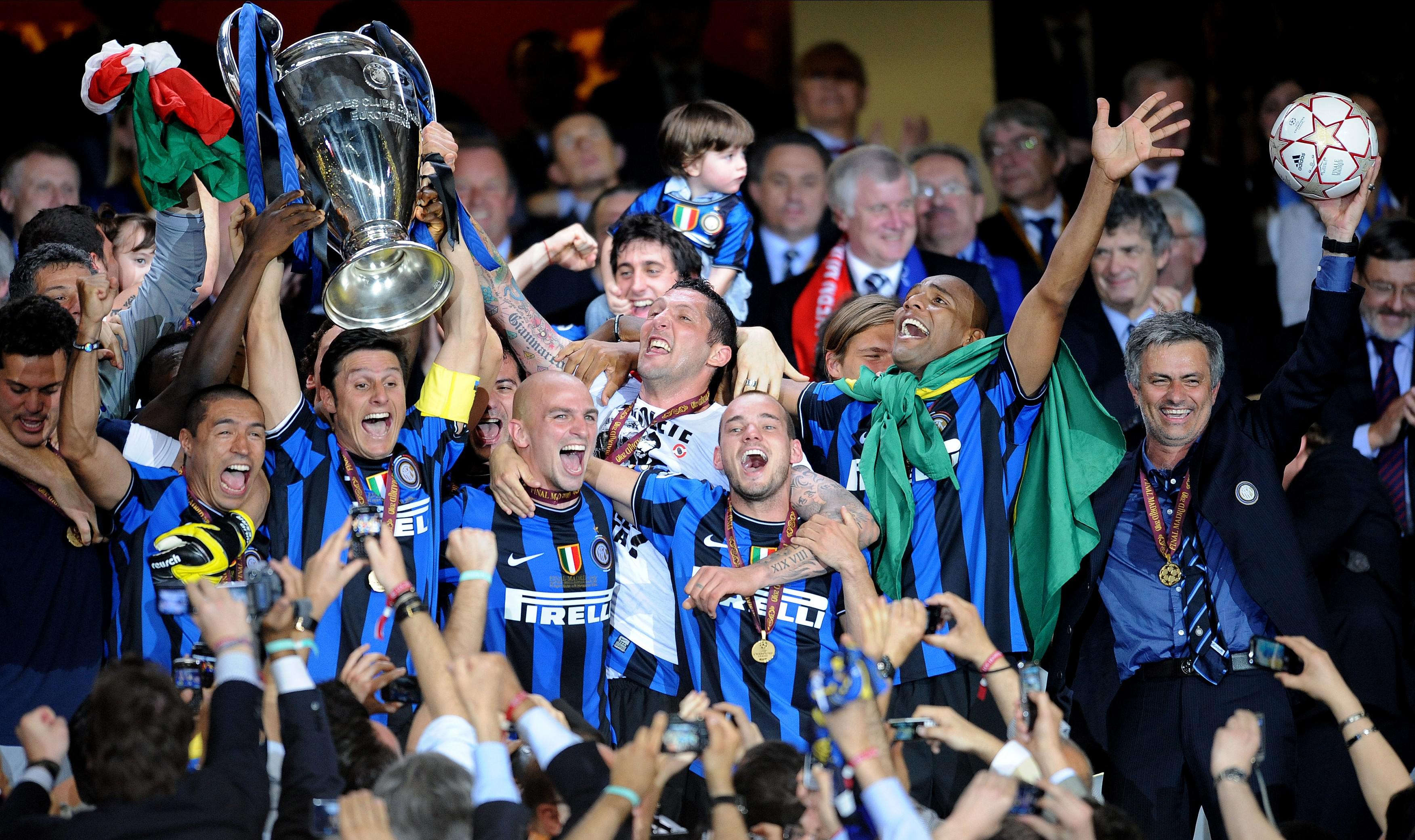Ranked! Every Premier League manager by their job security
As the 2018/19 season starts, Huw Davies assesses how likely each Premier League boss is to stay in their current seat. Whether they’re pushed or walk away is another matter...
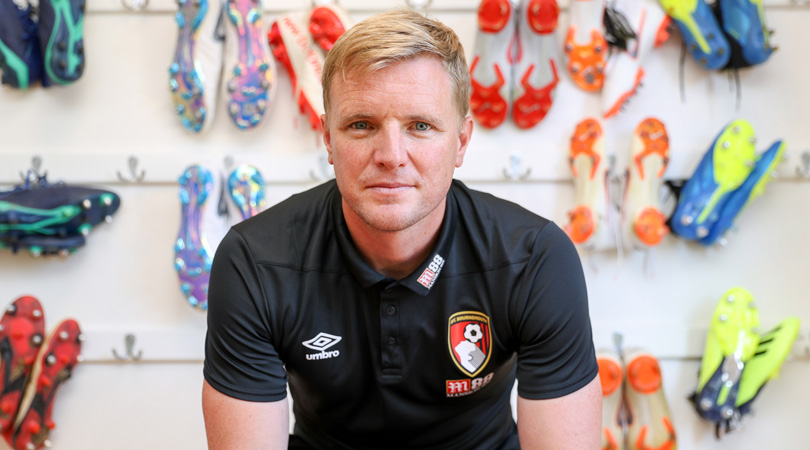
We know what you’re thinking: no Premier League manager is leaving their post this early.
It’s not going to be like last season, when Frank de Boer left Crystal Palace in mid-September as the first of six top-flight sackings before Christmas. Nor will 2018/19 be like 2016/17, when Francesco Guidolin was dismissed as early as October 3; nor 2015/16, when two managers were fired on October 4; nor 2014/15, when Tony Pulis was gone by the start of Palace’s season; nor 2013/14, when Sunderland’s Paolo Di Canio was let go in September; nor… hmm.
OK, maybe it wouldn’t be a gigantic surprise if one or more of these 20 managers didn’t survive to see October at their club. Some are far safer than others, however, and that’s where our countdown begins: with the securest manager in the Premier League.
20. Sean Dyche (Burnley)
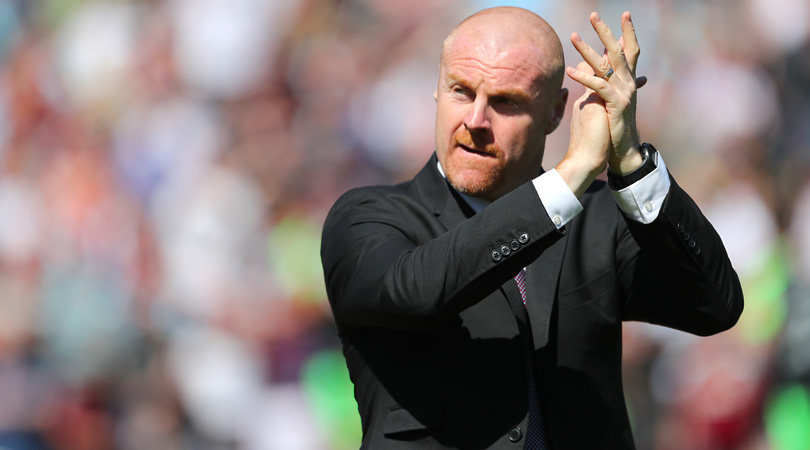
Burnley were admirably loyal to Dyche when they were relegated on a tiny budget in 2014/15 (most expensive signing: George Boyd for £3m), giving him time to reshape the team a bit and lead them back into the Premier League, then on to new heights. He could take them down again and still keep his job.
Oh, except Dyche’s Burnley inexplicably finished seventh last season, qualifying for Europe against all expectations. His job with the Clarets is safe as safe can be – plus, bizarrely, no bigger club seems to want him.
19. Pep Guardiola (Manchester City)
Get FourFourTwo Newsletter
The best features, fun and footballing quizzes, straight to your inbox every week.
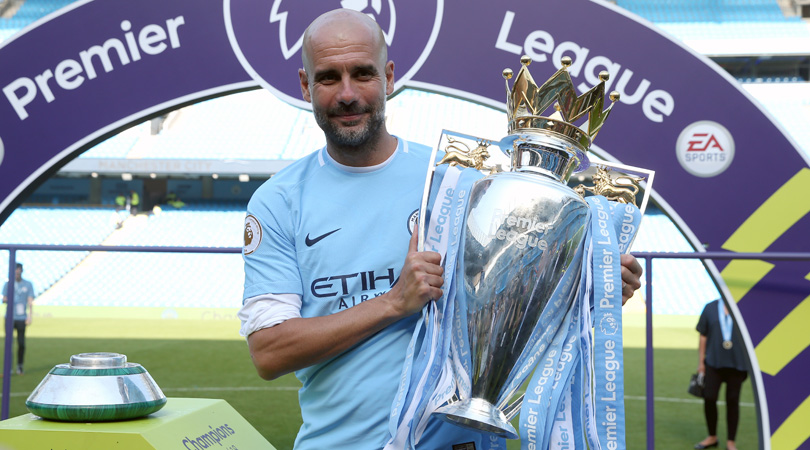
Put it this way: if Manchester City tell Guardiola to clear his desk after he masterminded their record-breaking 100-point title win, he would probably be justified in having a word with HR.
18. Jurgen Klopp (Liverpool)
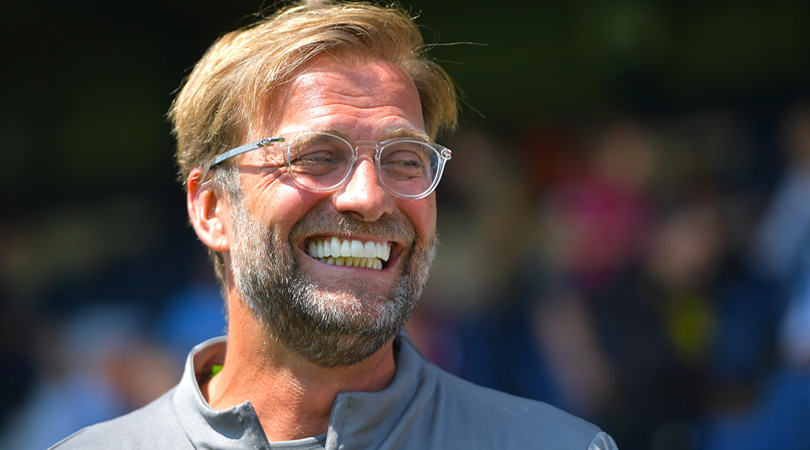
A Champions League final and top-four finish puts Klopp in the same boat as our No.19 at Liverpool, and there’s the added factor that the German is universally popular among the club’s fans (though, to be fair, Guardiola isn’t exactly lacking in this area either). Kloppo’s jovial but passionate personality endears him to the players and supporters of any club he manages, and that helps at Liverpool, where managers are put on something of a pedestal.
Klopp has been backed in the transfer market to the tune of £170m, which cued up Jose Mourinho to bleat that Liverpool must win the title now. It’d take more than a bad start to the season, such as the one that saw Klopp’s Borussia Dortmund sitting joint-bottom at the halfway stage in 2014/15, for the Reds to let him go any time soon.
17. Unai Emery (Arsenal)
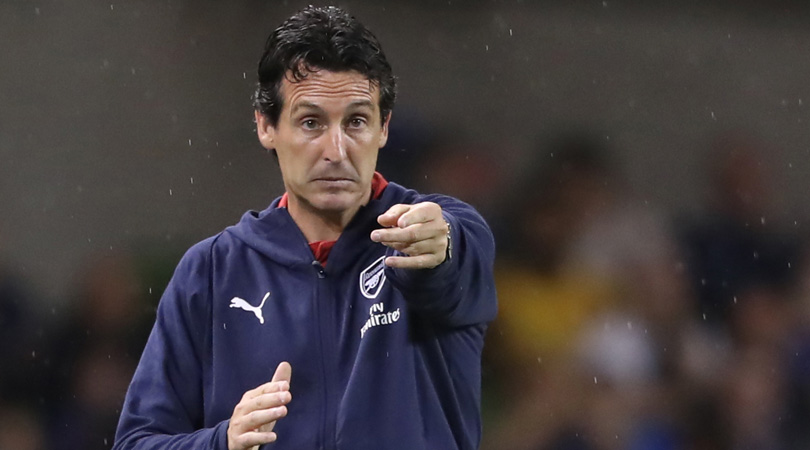
If Emery matches his predecessor’s record, he’ll leave Arsenal at the beginning of 2040, when the world is a barren desert and Joel Campbell is telling himself that this is his season.
Emery would probably be happy to reach 2020 right now, although the suits at Arsenal recognise that he’s a new man in a new league. Not only that, but in the past year the club have brought in 10 first-team players and let go of 13 who, between them, had made more than 1,500 Premier League appearances for Arsenal. Emery will be given time to get an unfamiliar squad singing his tune.
16. Eddie Howe (Bournemouth)
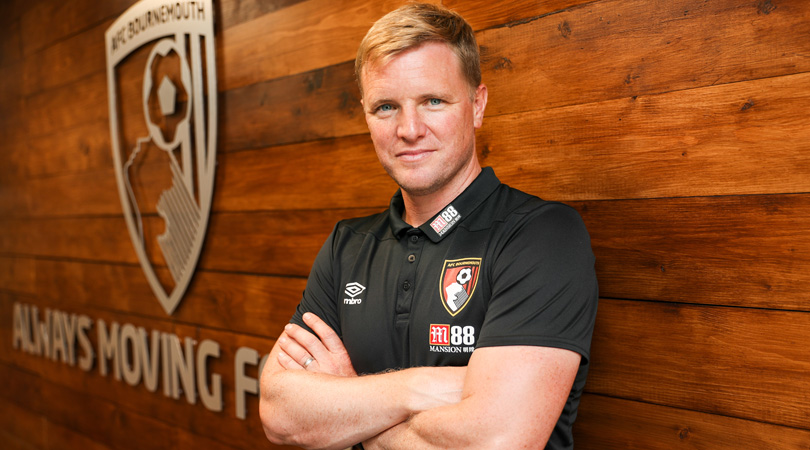
It’s not inconceivable that the Bournemouth board sack Howe if things are looking desperate, but it is very unlikely. For a start, the former Cherries player took over as a rookie manager in 2008 and guided them all the way up from League Two to the top flight – and he’s still only 40.
More to the point, there have been times in Bournemouth’s Premier League tenure when another club might have asked him to bite the bullet while they pulled the trigger. Howe’s charges were in the bottom three in December 2015 and December 2017, having begun the 2017/18 campaign by losing their first four matches. That didn’t faze the higher-ups, though, and neither would another poor half-season in 2018/19. Howe has always recovered up to now.
15. Maurizio Sarri (Chelsea)
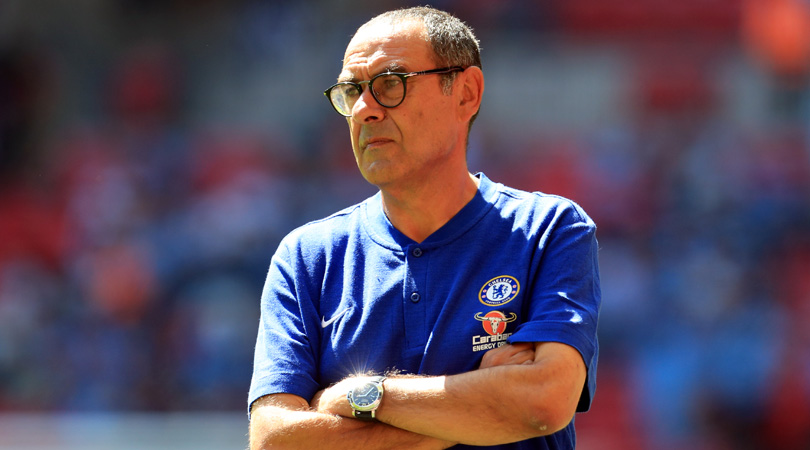
Even Roman Abramovich doesn’t sack his managers three weeks after hiring them. He does appear to have no tosses left to give, mind.
SEE ALSO Why English football could learn to finally love Chelsea under Maurizio Sarri
14. David Wagner (Huddersfield)
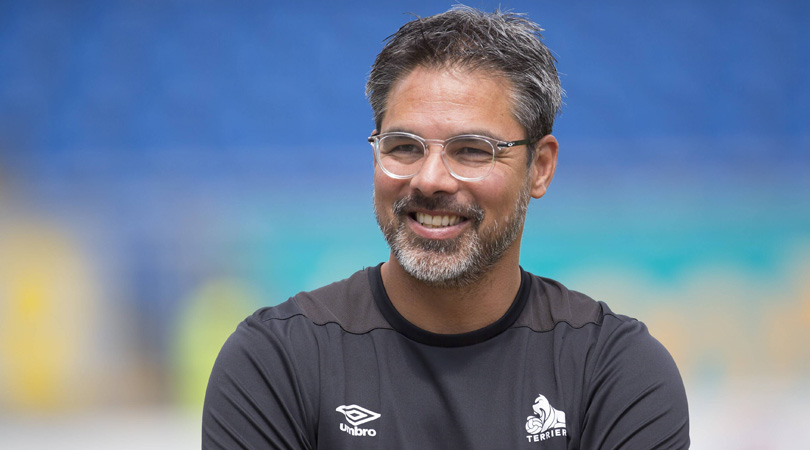
Huddersfield supporters will argue that Wagner’s position at the club is safer than this ranking of 14th suggests. Frankly, we agree, but a look at who’s gone before him – four club heroes and two very recent appointments – should reassure Terriers fans there’s nothing to worry about.
Wagner is Huddersfield’s own club hero of recent years, and he doesn’t lack support from his bosses. They aren’t pushovers, mind, having hired him in November 2015 to replace The Nicest Man In Football™ (Chris Powell).
13. Nuno (Wolves)
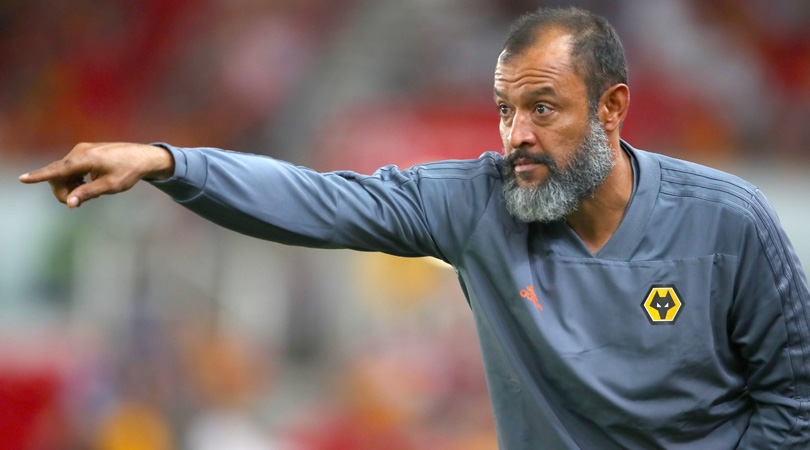
The Portuguese gaffer deserved more credit for the job he did last term. Hindsight-happy critics and opposition fans say it was Jorge Mendes and his players who won the Championship title, and that Wolves’s promotion was simply inevitable, but how often have we seen a good squad fail to deliver? Besides, in 2016/17, Walter Zenga and Paul Lambert had received a landing party of talent in Helder Costa, Ivan Cavaleiro and Romain Saiss, and Wolves finished 15th.
Consequently, Nuno’s position looks pretty secure – though he will face unusually high expectations for the manager of a promoted team.
12. Chris Hughton (Brighton)
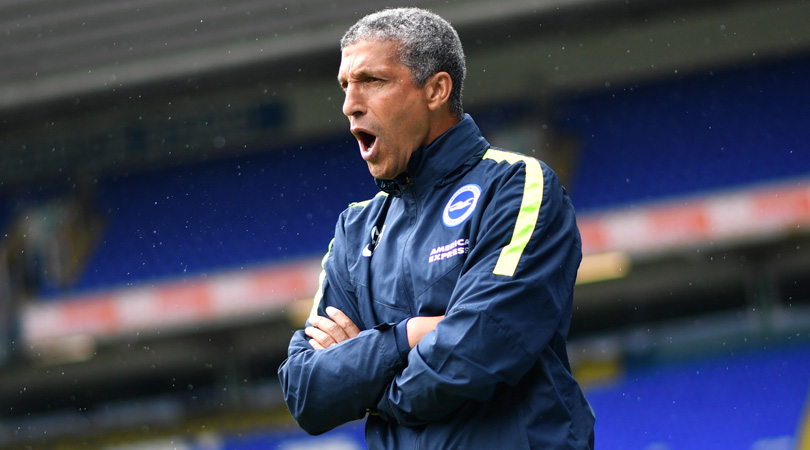
Popular and entrusted with enough of a kitty to break Brighton’s transfer record twice in one summer, Hughton need worry only about the possibility of impatience from above should his team start slowly. Brighton face Manchester United, Liverpool, Tottenham and Manchester City before October arrives.
11. Mauricio Pochettino (Tottenham)
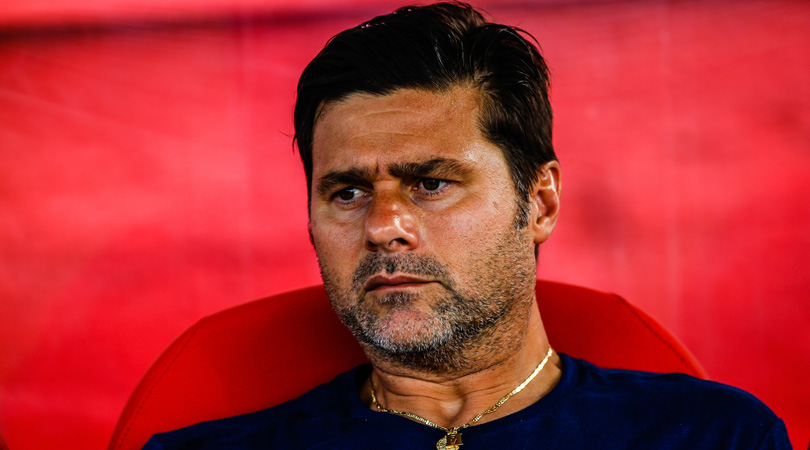
While Tottenham’s fans would naturally like another trophy in the cabinet at their new stadium, Daniel Levy couldn’t realistically have asked for more from Pochettino after poaching him from Southampton in 2014. Consolidation on a budget was the mission statement, as White Hart Lane’s redevelopment plans… well, developed. Pochettino delivered a cup final followed by a trio of top-three finishes, using young English talent and, staggeringly, a net transfer spend of around £20m across his four seasons. Levy’s appointment exceeded his own expectations.
Now, there’s a hint of potential strife. Pochettino extended his deal in May, yet a summer without a first-team arrival (or departure) raises concerns that Spurs look a little staid – and Pochettino knows he’s a man in demand.
Although it’s undeniably good news that new contracts have been signed by Harry Kane, Son Heung-min, Davinson Sanchez, Erik Lamela and Michel Vorm (not to mention Harry Winks and Kyle Walker-Peters), a manager saying “that’s like signing five new players” is rarely a harbinger of anything good. Levy and Pochettino aren’t inexorably headed for divorce, but they are eating their anniversary dinner in awkward silence.
10. Roy Hodgson (Crystal Palace)
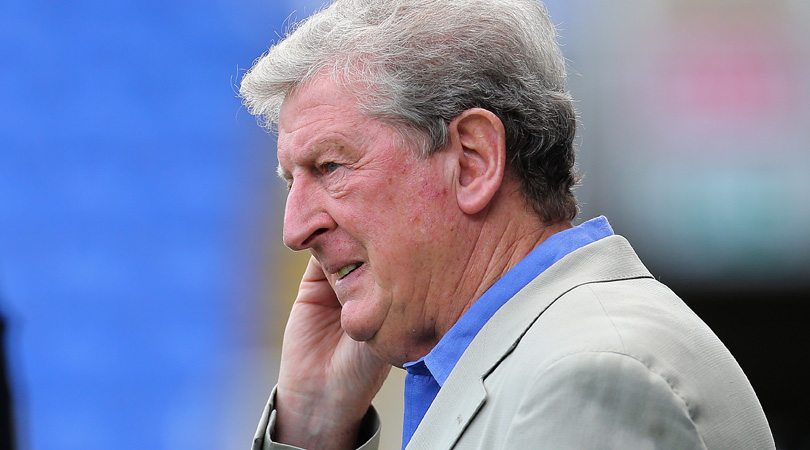
As a Croydon lad who inherited Crystal Palace during the worst start to a campaign in English football history and led them to 11th by the season’s end, Hodgson isn’t under too much scrutiny.
He does turn 71 today, however, so even he wouldn’t begrudge the club considering long-term options to follow him – and as the dismissals of Ian Holloway in 2013 and Neil Warnock in 2014 showed, Steve Parish doesn’t let sentimentality get in the way of an early-season sacking. It’s unlikely, but not impossible.
9. Neil Warnock (Cardiff)
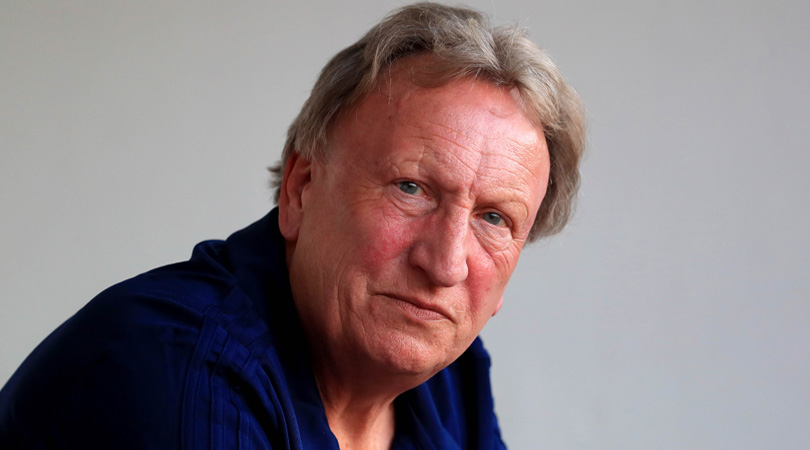
Another old-timer, Warnock enters his eighth decade in December and is still his same old self. His outspoken nature and Cardiff’s likely struggle in 2018/19 would appear to make him ripe for the chop, so he’s fifth-favourite in the sack race among most bookies.
However, Vincent Tan, Mehmet Dalman & Co. seem to have learned the lessons of 2013/14. Cardiff won’t be bringing in another rookie mid-season, as they did with Ole Gunnar Solskjaer. And if they want experience, there’s not much point in sacking Warnock.
He has worked wonders in Wales and will be given every opportunity to seal Premier League survival for the first time in his career. There’s just a question of how much pressure he’d later be under if the Bluebirds don’t take six or seven points from their three winnable games in August, because the September and October schedule brings six of last season’s top seven (and Fulham).
8. Slavisa Jokanovic (Fulham)
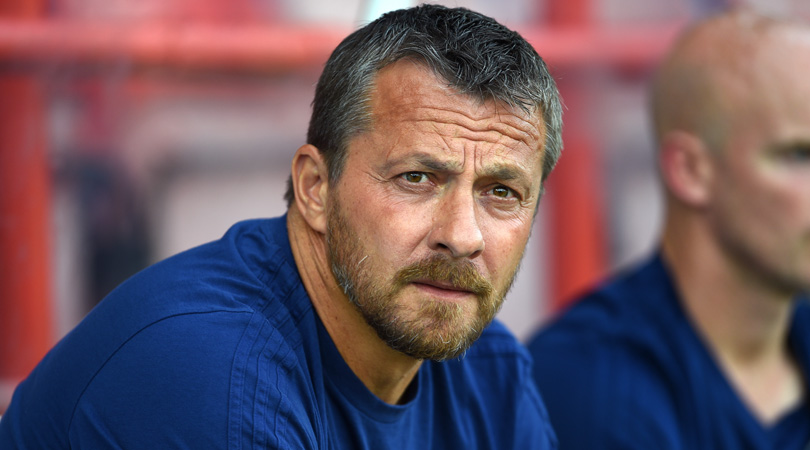
His ability and popularity aren’t in question. Fulham would be mad to let him go. But bigger clubs are sniffing around, and although Jokanovic has shown newfound commitment here, the average length of his tenure at his six previous clubs, in six different countries, was under nine months. He’s approaching three years in this job. Maybe he’s finally settled down. Maybe...
7. Marco Silva (Everton)
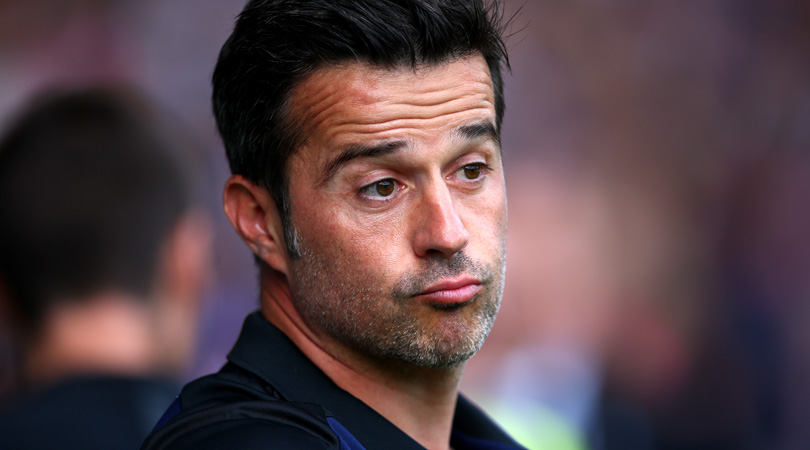
Speaking of itinerant managers, Silva’s wanderlust – or impatience – is well documented: Everton are his sixth club in just over four years. The Toffees, meanwhile, wasted no time in jettisoning an underperforming Ronald Koeman last season. Throw in a lack of signings, at a club requiring plenty – Everton have bought Richarlison and Lucas Digne but still need a striker, another holding midfielder and two new centre-backs – and things could quickly get fractious.
Still, Silva hasn’t even taken charge of a competitive game yet, and Everton have been patient with their managers in the past. That was Bill Kenwright, however, and this is Farhad Moshiri.
6. Manuel Pellegrini (West Ham)
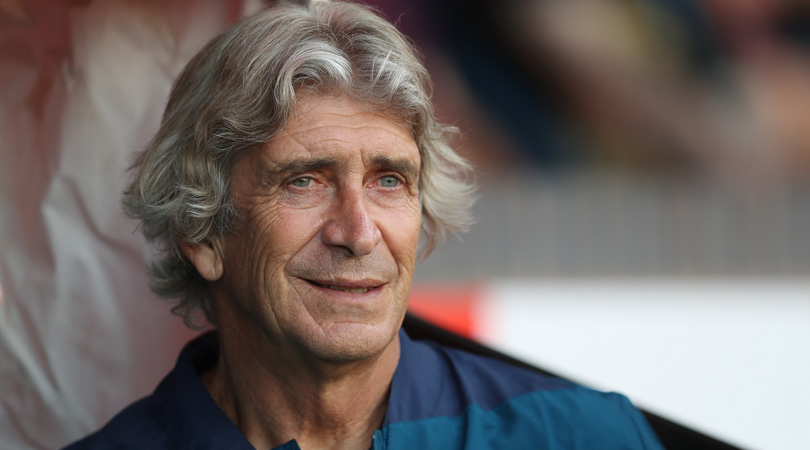
On one hand, we have a freshly appointed manager and £90m spent on new players. On the other, we have the unpredictable nature of West Ham’s owners, who have been known to contradict their own statements within 24 hours. To be honest, your guess is as good as ours.
5. Mark Hughes (Southampton)
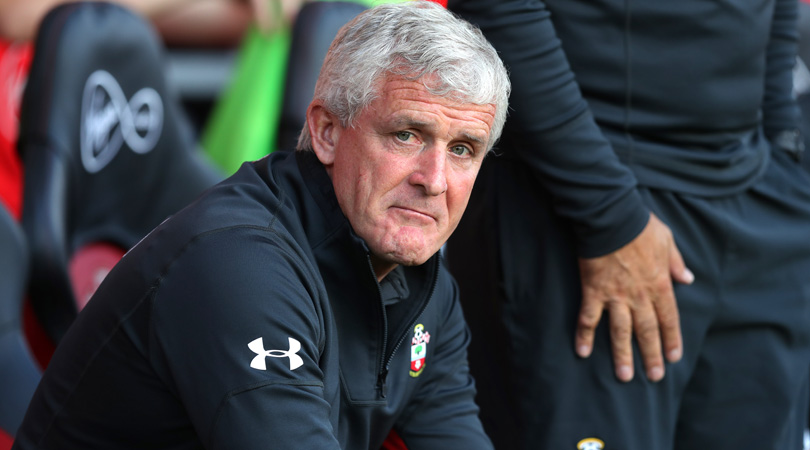
Southampton’s revolving-door policy for managers isn’t entirely of their doing, seeing as Mauricio Pochettino and Ronald Koeman were both stolen away from them, but their own ruthlessness in dismissing Nigel Adkins, Claude Puel and Mauricio Pellegrino, however justified in each instance, means they have a reputation for short-term thinking. Making Mark Hughes their first unadventurous appointment in years only added to this.
Hughes has his own reputation to rebuild, making his arrival in March a marriage of convenience. Such marriages don’t tend to last in football, and Southampton may be papering over the cracks with a summer outlay of £55m for a quartet of arguably uninspiring signings. However, Hughes is still fresh in the job and should be given at least a little time to fix Saints.
4. Jose Mourinho (Manchester United)
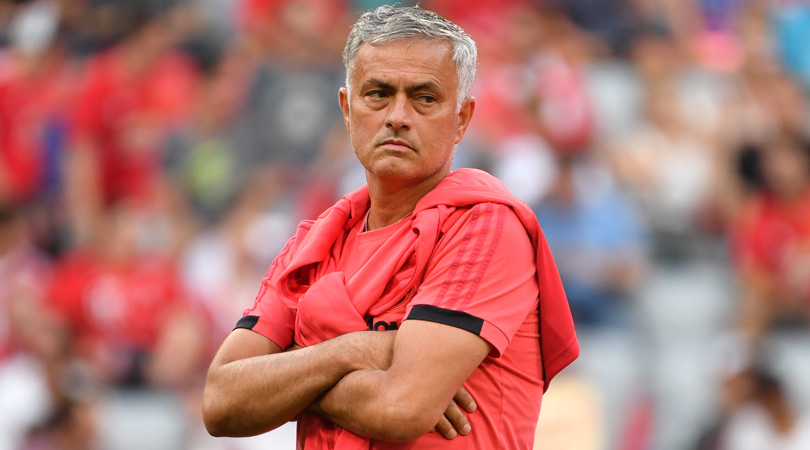
FourFourTwo recently collated every negative soundbite given by Mourinho in Manchester United’s 2018/19 pre-season, from scheduling gripes to complaints about his squad. Before liberal editing, the document stood at 3,750 words (true story). He’s unhappy, the fans are unhappy and the club hierarchy must be unhappy. The manager has placed Ed Woodward under significant public pressure to get another two transfer deals over the line, while doing little to reassure his boss that he’s the right man for his own job.
So, why is Mourinho No.4 in this list instead of No.1? Because Woodward can’t really sack him right now. With Champions League revenue to protect, United won’t bring themselves to enter a season without a manager who signed a new contract earlier this year and still guarantees a degree of success. For now, they’re stuck together – if only because it’s a sticky situation.
NEWS Mourinho rails against negative Manchester United coverage
3. Claude Puel (Leicester)
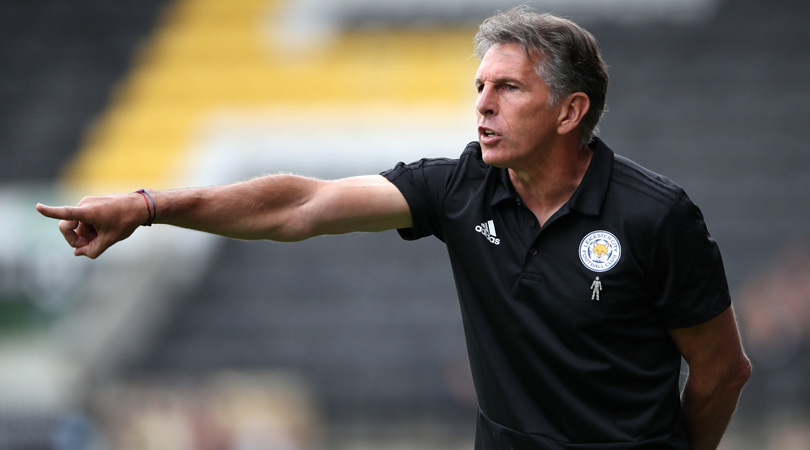
A series of capitulations late last term led to boos from Leicester’s fans and an admission of guilt from their manager, so it’s no surprise to see that Puel is the bookies’ favourite to win the sack race this season. Although the initial swirl of negativity around his appointment was unjustified, and although Puel did guide Leicester from 14th to 9th following his October arrival, the Frenchman does have a long way to go to convince his doubters.
Yes, Puel has been backed in the transfer market. Leicester have bought big and bought well, their wallet bulging with Manchester City’s Riyad Mahrez money (indeed, selling Ahmed Musa as well puts them in profit for the summer). Puel has been given what he needs. But this creates a certain expectation from above and below. That’s always a double-edged sword, and for Puel at Leicester it’s the sword of Damocles.
2. Javi Gracia (Watford)
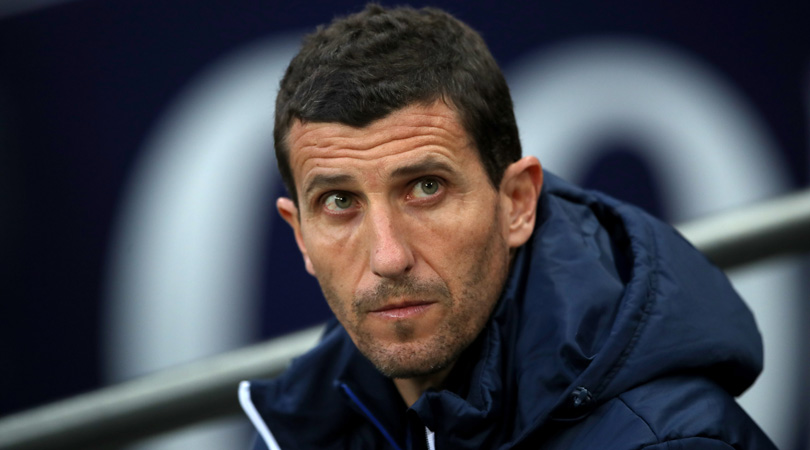
We’re not saying Watford enjoy sacking managers. We’re just saying that the last Watford boss to take charge of 40 or more league games was Gianfranco Zola in 2013. Furthermore, a lean transfer window that has so far brought in a profit of around £25m does not imply overwhelming confidence in Gracia’s long-term prospects. And no wonder: taking an average from Watford’s past half-dozen appointments, he’s got until the end of October.
1. Rafael Benitez (Newcastle)
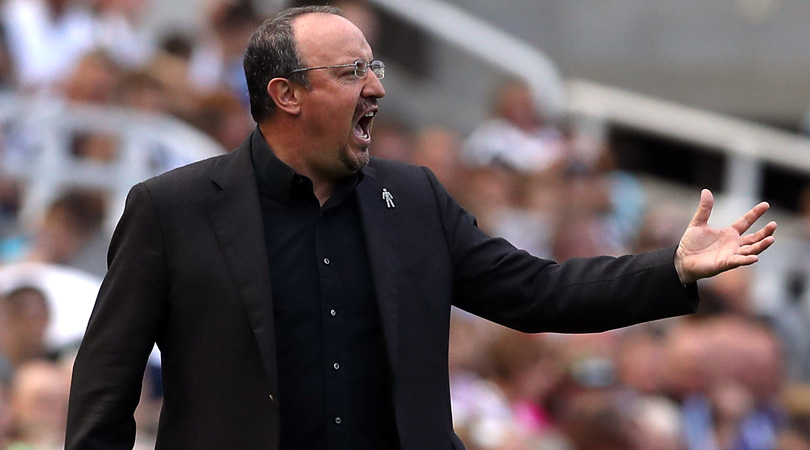
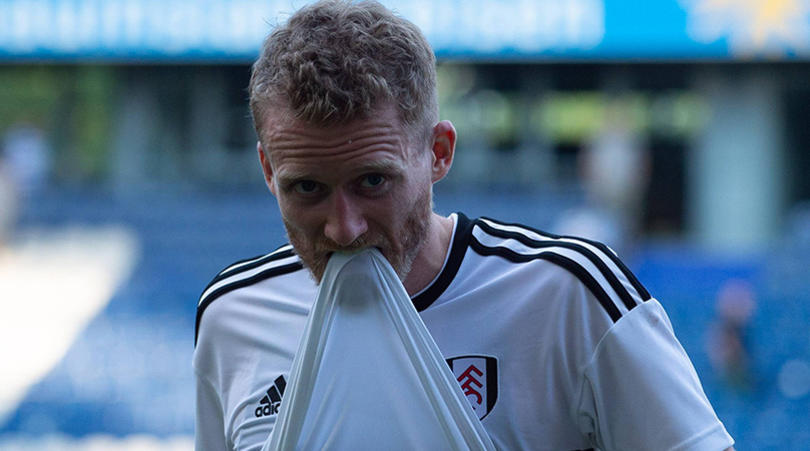
Although it’s easily forgotten that Newcastle are still signing players – they’ve brought in six so far, while Spurs, Burnley and Crystal Palace have all spent less – Mike Ashley is nonetheless walking a very thin tightrope. Picture that if you will.
It’s not the supporters’ trust that Ashley risks losing with his parsimony and disrespect, because that’s long gone. It’s the very real possibility that Benitez, among the few good things to happen to Newcastle in recent years, might decide he’s had enough. This window has brought the club a healthy £43m in transfer fees and less than half of that has been reinvested, which is something of a trend. Their squad isn’t worthy of the 10th place Benitez gave them last season and he could go at any time, with neither party committing to extending his contract. It’s seemingly just his love of English football and loyalty to the Newcastle fans that keeps him at the club.
Then there’s the other angle. Ashley may decide that, actually, he could find another manager who is either willing to accept financial constraints in return for the opportunity, or who’ll convince themselves they can change him. After all, if Benitez can take this team to 10th, anyone could manage 17th, right? And that’s presuming Ashley even sees relegation as a significant deterrent – 2015/16 would suggest otherwise.
This could end one of three ways. No.1: Benitez walks. No.2: Ashley fires him. Three: investment in the squad appears. It is not going to be No.3.
Huw was on the FourFourTwo staff from 2009 to 2015, ultimately as the magazine's Managing Editor, before becoming a freelancer and moving to Wales. As a writer, editor and tragic statto, he still contributes regularly to FFT in print and online, though as a match-going #WalesAway fan, he left a small chunk of his brain on one of many bus journeys across France in 2016.
